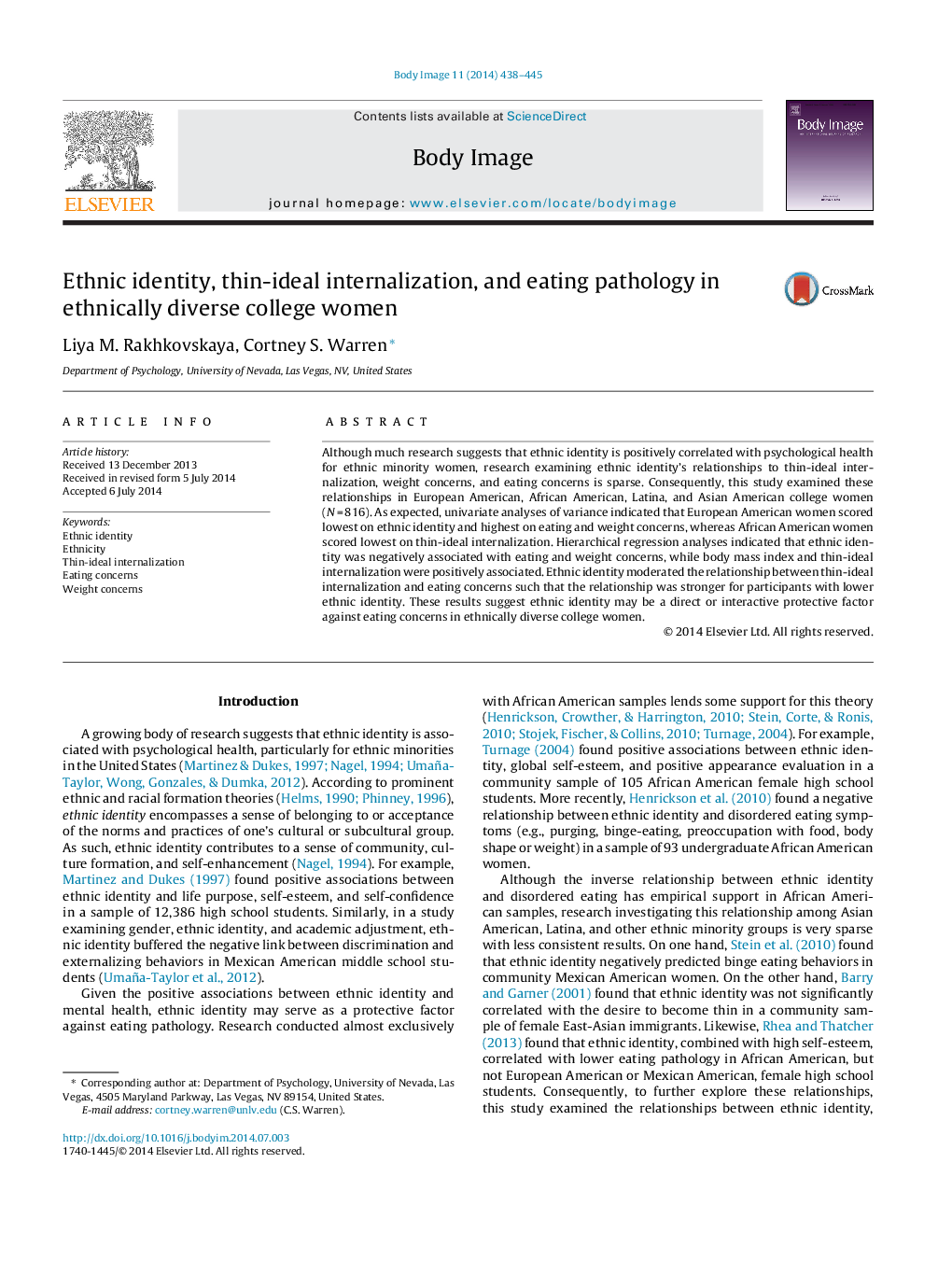| Article ID | Journal | Published Year | Pages | File Type |
|---|---|---|---|---|
| 902825 | Body Image | 2014 | 8 Pages |
•We examined ethnic identity, thin-ideal internalization, eating and weight concerns.•Results showed ethnic differences in mean scores.•Ethnic identity negatively predicted eating concerns and weight concerns.•Ethnic identity moderated the thin-ideal internalization and eating concerns link.•The abovementioned link was weaker for individuals with stronger ethnic identity.
Although much research suggests that ethnic identity is positively correlated with psychological health for ethnic minority women, research examining ethnic identity's relationships to thin-ideal internalization, weight concerns, and eating concerns is sparse. Consequently, this study examined these relationships in European American, African American, Latina, and Asian American college women (N = 816). As expected, univariate analyses of variance indicated that European American women scored lowest on ethnic identity and highest on eating and weight concerns, whereas African American women scored lowest on thin-ideal internalization. Hierarchical regression analyses indicated that ethnic identity was negatively associated with eating and weight concerns, while body mass index and thin-ideal internalization were positively associated. Ethnic identity moderated the relationship between thin-ideal internalization and eating concerns such that the relationship was stronger for participants with lower ethnic identity. These results suggest ethnic identity may be a direct or interactive protective factor against eating concerns in ethnically diverse college women.
